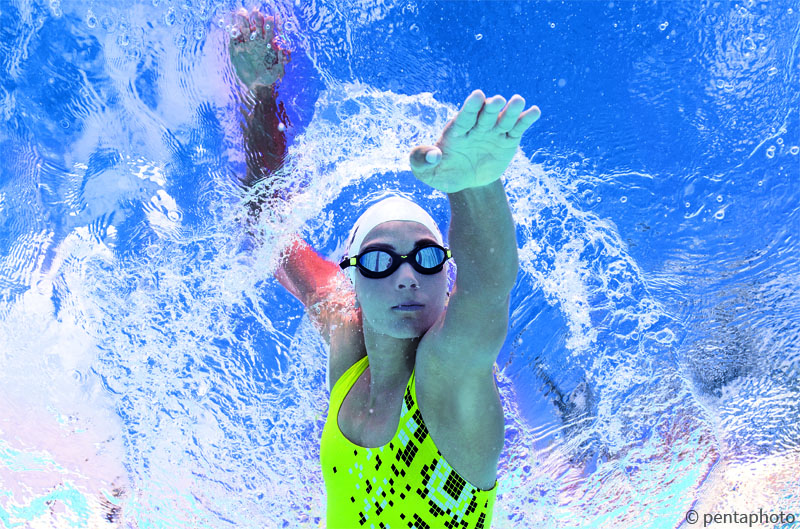Swimming, like sports in general, provides an excellent excuse to talk about mental training. Mastering how to set goals, be resilient and learn how to do your very best will be useful to you not only in sport but in life in general.
This article sets out to focus on certain “mental” techniques that might help you improve not only your swimming performance but also your life outside sport.
First and foremost, learn how to avoid negative self-talk[1]. Easier said than done. How often, when faced with a really tough task, have you heard yourself say: “I cannot do it”; “Impossible”; “I will never be able to do it”. Self-sabotage is the worst way to set about doing something. When this self-harmful internal monologue makes an appearance before some event, try and find alternative ways of dealing with the situation. For example, if you think your goal is too hard, then set yourself another one that is within your reach and more realistically attainable.
Steve Jobs used to say: “Focus is not about saying yes. Focus is about saying no”. Learn to say “no”. “No” to distractions , “no” to a lack of attention, “no” to anything that might distract you from your goal. Do not let your mind wander. Learn not to be distracted by external factors and focus solely on what you were doing. This will allow you to perform to the very best of your ability.
Learn how to handle high-pressure situations. The best way to keep cool under pressure is to be used to this kind of situation. If you have learnt how to handle pressure in training, then handling pressure in a race will turn out to be something extremely “simple”. Cope with the pressure and prepare everything in the most minute detail. This will allow you to perform really well.
Have your own “anchor” ready. Only too often, there is a gulf between what happens in training and what happens in a race. This only makes it harder to achieve your goal. Having some kind of “anchor” enabling you to relive positive sensations you have already experienced in training can be extremely important. This might be just an ordinary object (swimming cap , bag), a gesture (beating your chest) or simply saying something (“Go for it!”). Developing this kind of “signal” and then putting it to use both in training and races can trigger something off in your mind (and, consequently, also in your body), so that it is ready for you to perform at your very best.
Focus on performance goals. Focus on things you can control. Improve your technique, your training sessions and your nutrition. These might seem like rather obvious things, but in the end they can help you succeed. There is no point in concentrating on results, you can only control what happens in your lane, you cannot control what your fellow competitors do.
These are just a few tips about training your mind so that you perform better, but they might well turn out to be valuable allies in performing at your very best.
[1] “inner” dialogue
—————
